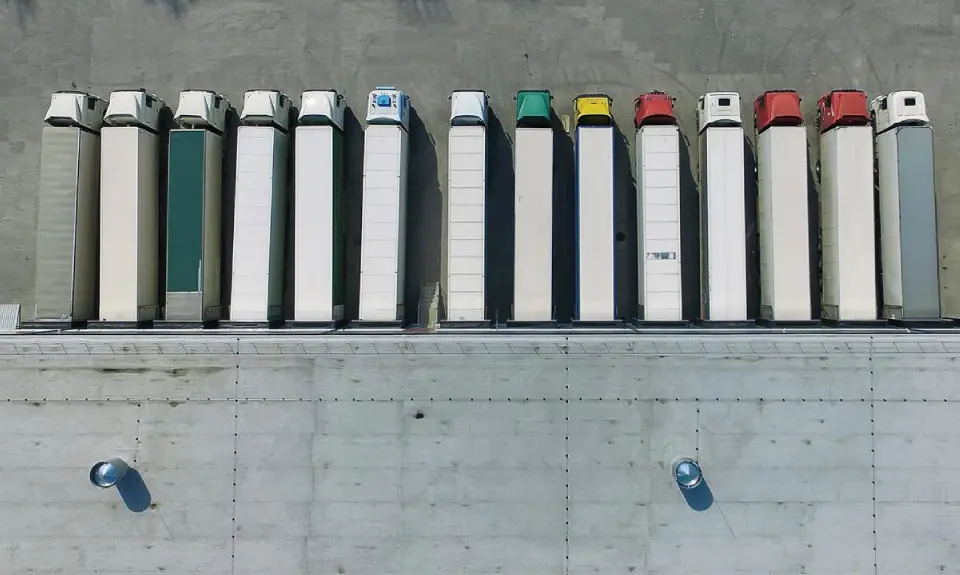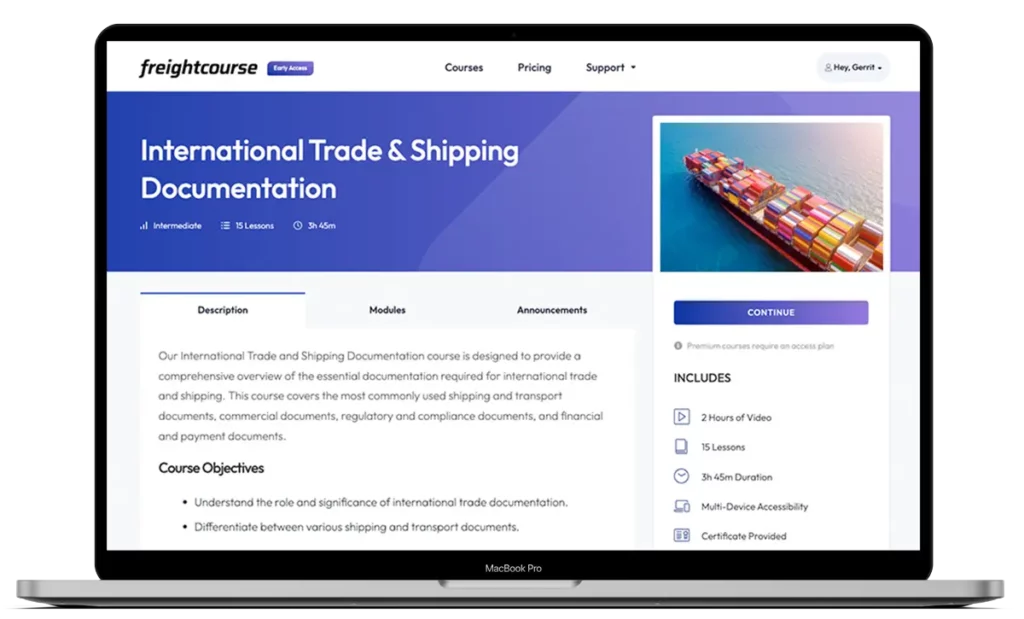Truckers provide various freight transportation services to shippers. Due to the variety of services offered, carriers usually have their trucks and drivers operating far from their home base.
Therefore, truckers require a place to rest once they hit their Hours of Service (HOS) and perform regular maintenance activities. As a result, truck terminals have become one of the most essential aspects of modern freight supply chains.
Truck terminals are facilities that serve as terminals for trucking companies operating in different parts of the country, providing drivers with a place to rest, temporarily store cargo, plan operations, and take care of repairs.
A typical truck terminal includes a parking lot for trucks or trailers. In some terminals, trucks are serviced, fueled, washed, repaired, and maintained. Most terminals are located near highways to provide convenient access.
In this article, we’ll walk you through the most common facilities available in truck terminals, their key applications in the industry, the benefits of using a truck terminal, and factors to consider before leasing one.
Facilities Available in Truck Terminals
As mentioned, truck terminals serve as central hubs for managing and coordinating trucks and cargo between different locations. Below are some of the most common facilities that are available at truck terminals.
| Facility | Description |
| Truck Parking | Parking space is the most important facility offered by truck terminals. It allows truckers to park their trucks. This allows drivers to rest, ensuring that they follow the Hours of Service (HOS) regulations. |
| Office Building | Most truck terminals have an office building where carriers can plan their routes, carry out mandatory paperwork, and house their tracking equipment. The facility is occasionally used by truck dispatchers who coordinate routes and schedule loads. |
| Repair & Maintenance | Many truck terminals are used to repair and service fleets. Common activities include oil changes, tune-ups, tire gauging, cargo weighing, and more. All these services (and more) provide convenience to truckers and minimize trips to different dedicated maintenance facilities. |
| Washers | Keeping trucks clean is an important aspect of trucking operations. As a result, many truck terminals have washing facilities to remove road dirt, mud, oil films, and residues. |
| Fueling & Charging Stations | Since truck terminals mainly serve as resting facilities for truckers, you can find several amenities, including restaurants, convenience stores, showers, ATMs, etc. As an additional benefit to alleviating drivers’ fatigue, it also helps carriers reduce unnecessary truck idling. |
| Security | Truck terminals are usually equipped with security fencing, surveillance cameras, and guards to prevent theft, vandalism, and other unwanted incidents. |
| Amenities | Since truck terminals mainly serve as resting facilities for truckers, you can find several amenities, including restaurants, convenience stores, showers, ATMs, and more. |
Applications of Truck Terminals in the Trucking Industry
Truck terminals have several applications that make operations easier for truckers. We’ve highlighted the main ones below.

- Cross-Docking – Many large truck terminals allow truckers to consolidate or transfer freight between trucks. This simple application enables carriers to optimize their loads and reduce their costs, especially when hauling less-than-truckload cargo (LTL).
- Rest Area – Most truck terminals provide a rest area with bathrooms where drivers can freshen up. Some also come with fast-food dining and other amenities that can prompt truckers to stay longer.
- Slip Seating – Slip seating is a common practice in the trucking industry, especially in trucking companies with large fleets and shipping volumes. This practice involves drivers sharing a truck for continuous hauling. Truck terminals usually serve as a hub for carriers to organize slip seating and driver rotation.
- Truck Servicing – Trucks require routine repairs and maintenance to keep them in running condition and prevent issues on the road. Since truckers spend their rest time in terminals, many of these facilities provide repair and maintenance facilities.
- Stopover Location – For many truckers, truck terminals simply serve as a place to park their trucks following their shifts so they can avoid bobtailing back to their home base.
Truck Terminal Facility Comparisons
Although truck terminals are the most popular trucking facilities in the industry, they’re not the only types of facilities truckers can opt for. Below, we’ll talk about how truck terminals compare with other similar facilities, including drop yards and distribution centers.
Truck Terminals Versus Drop Yards
Truck terminals serve as temporary stopover facilities for truckers looking to park their trucks following the end of their shifts. Meanwhile, drop yards are dedicated facilities that are mainly used for storing trailers.
Truck terminals provide several facilities and amenities, including parking, washing, repairs & maintenance, and rest areas. In contrast, most drop yards only provide container storage and security services.
However, it’s not uncommon for truck terminals to also have a parking area for trailers. As a result, rental costs for drop yard spaces are generally less expensive than terminals.
Truck Terminals Versus Distribution Centers
Truck terminals are generally located close to highways, ports, airports, and rail depots. On the other hand, distribution centers are found in populated areas, such as urban centers.
Moreover, truck terminals provide rest areas, parking lots, fueling stations, and several other facilities. Whereas, distribution centers mainly provide specialized equipment for cargo handling, including conveyor belts, forklifts, palletizers, and more.
The core purpose of a truck terminal is to serve as a stopover facility. Conversely, distribution centers are used for receiving, storing, shipping, sorting, and other supply chain processes for retailers, wholesalers, and manufacturers.
Advantages of Truck Terminals
Due to their vast applications, truck terminals offer carriers and owner-operators the following benefits:
- Ease of Access – As mentioned above, truck terminals are located close to highways, ports, and rail depots, making them easy to access for truckers. Trucking companies typically have several truck terminals in strategic locations.
- Available Dedicated Infrastructure – As explained above, truck terminals provide several facilities, including parking for all types of trailers and trucks, rest areas, and maintenance, to name a few. Hence, they can be used by small carriers and owner-operators as their base of operations. Simply put, these facilities can prompt truckers to forego renting a drop yard or dedicated facility.
- Provides a Secure Location – Most truck terminals are equipped with multiple security cameras, especially around entry and exit points. Therefore, they provide a secure spot for parking container trailers and trucks while drivers rest.
- Saves Cost – Truck terminals provide a more cost-effective alternative to idling on the road. Instead of running their engines during rest, truckers can switch them off and save fuel by staying in rest areas. Similarly, truckers with no trailers to haul can limit bobtailing and reduce their cost per mile by parking at a truck terminal nearby instead of driving back to home base.
- Improves Productivity – Due to the vast facilities truckers have available at a truck terminal, drivers can limit the need to drive to other locations for repairs, maintenance, cross-docking, and fueling. Hence, they can improve their work efficiency and use a truck terminal as a central hub for all aspects of their operations.
Considerations When Leasing Truck Terminals
Many large carriers lease truck terminals in different parts of the country to serve as central trucking hubs. However, choosing a location for a truck terminal isn’t always a straightforward decision. Below are some of the key considerations you need to account for beforehand.
Capacity
The first and foremost factor to consider when choosing a truck terminal is the capacity. Any facility you lease should be large enough to accommodate your fleet and any additional trucks, equipment, and resources you need to store.
Take note that most trucking companies evaluate a terminal’s capacity based on the number of parking spaces and docks available (if cross-docking is required).
Costs
Cost is another important factor that needs to be considered before choosing a truck terminal to lease. The trucking industry is highly competitive and as a result, truckers must evaluate their cost savings against the leasing cost to determine whether or not a particular terminal fits their budget.
Location
Another important factor to consider is the location. Ideally, truck terminals should be leased close to your most frequent trucking routes, client locations, and major highways.
It’s also crucial to choose a location that is in close vicinity to other related facilities, such as motels, restaurants, and convenience stores, to give truckers more options to choose from.
Facilities
Truck terminals should provide adequate security in the form of surveillance cameras, guards, alarms, and fencing. Other facilities include parking, rest areas, and maintenance services.
Remember, the more facilities a terminal has to offer, the higher the leasing cost. Therefore, it’s important to find the right balance in terms of facilities and costs to ensure your decision to lease a trucking terminal complements your operating needs.

Get Free Course Access
If you enjoyed the article, don’t miss out on our free supply chain courses that help you stay ahead in your industry.

Andrew Lin
Co-Founder & Writer
at freightcourse
About the Author
Andrew is a multi-business owner with over 12 years of experience in the fields of logistics, trucking, manufacturing, operations, training, and education.
Being the co-founder of freightcourse has given him the ability to pursue his desire to educate others on manufacturing and supply chain topics.
Follow us